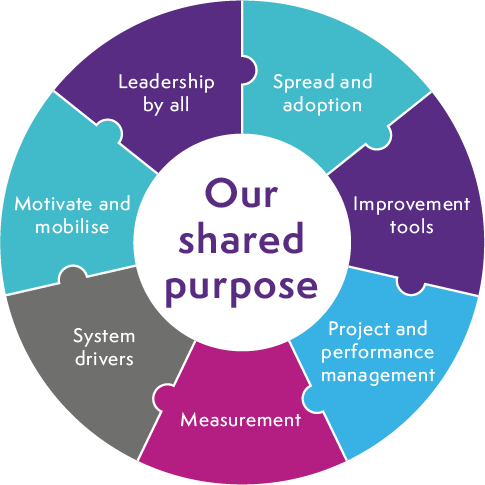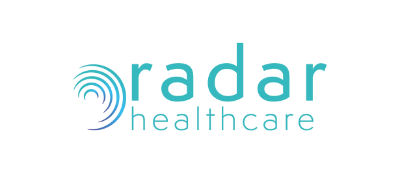Integrating cultures: data-driven change management to underpin Integrated Care System (ICS) transformation
19 May 2021
Tags:
The emergence of Integrated Care Systems (ICSs) as statutory bodies is set to be one of the most significant organisational changes NHS providers have experienced to date. This transformation will require large scale change management driven by strong leadership to deliver collaboratively on priority areas such as prevention and population health management.
Aligning multiple NHS providers with local authorities and others to deliver integrated health and social care will bring many challenges. Not least, connecting multiple cultures, behaviours and processes to deliver a seamless patient experience and provide continuity of care across the system.
With this in mind, getting the underpinning culture of an ICS right will be essential to its success. And fundamental to this will be building a strong organisational structure with robust control systems to monitor performance and variation across the board; ensuring the same information-sharing protocols and learning opportunities are available system-wide.
Using data to create a culture of trust and learning
At the heart of the delivery of health and care is people and if the last year has taught us anything, it’s that our NHS workforce is one of the most dedicated and professional teams in the world. As we hopefully move a step closer to post-pandemic normality, NHS teams, like many others, are trying to understand what their ‘new normal’ looks like. This, coupled with the ICS changes afoot will undoubtedly create feelings of uncertainty amongst the workforce.
They say ‘knowledge is power’ and this is certainly true when it comes to change. Openly sharing data and information can ease uncertainty, creating a culture that gives everybody permission to work on system transformation; enabling people to be more accepting of change because they’re part of the process.
Data can help people take an objective view on change, support risk analysis and build credibility for change initiatives. It can also support the co-production of common visions and priorities across a system, making the change management process inclusive rather than exclusive.
Data-driven change management
Having visibility of performance and variation within NHS and provider organisations is not just a ‘nice to have’, it’s a mandatory requirement for regulatory compliance. But, the manual processes and data silos that exist in the health and care sector make benchmarking, performance monitoring and corporate oversight difficult. This is further exacerbated by the many and varied organisations that need to come together to deliver seamless care pathways to local populations.
There has to be a better way… data is integral to successful change management and even has the power to accelerate change when used effectively. Creating a standard approach to the aggregation, presentation and analysis of data can provide greater visibility of how organisations are working together and help to identify issues within the system quicker. There is also a real opportunity for ICSs to share best practice and collectively learn from issues across providers so that the same mistakes aren’t made twice.
NHS England’s change model provides a framework for any project or programme that is seeking to achieve transformational, sustainable change. Data is at the heart of this change model whether it be using data to understand the current process, problem or baseline or understanding what success looks like moving forward.

Figure 1 Adapted from NHS England’s change model
The change model is described as ‘an integral, interconnected framework’, a description which is synonymous with the requirements for data sharing across a system. The term ‘interoperability’ is often used throughout the health and care sector and lack of integration capability within processes or technology can be a barrier to data sharing; but it is no longer acceptable for technology to be deployed into the NHS without a clear roadmap for interoperability. System leaders will be looking for ways to support more effective data sharing; to foster a culture of innovation, connectivity and relationships in order to help to improve the patient experience and improving workforce efficiency.
Creating sustainable change
All too often, we see proactive communication of change at the start of a programme which then dwindles as time goes on. By embedding proactive and automated data sharing protocols into the change management process from day one, teams can work more effectively because they have the information they require at the touch of a button.
There is a clear opportunity for ICSs to create system-wide learning and evaluation frameworks that can help providers broaden their focus on individual health to population health management. This will need to include multiple stakeholders and will not be an overnight process but by encouraging an open and transparent culture from day one, with robust data-sharing protocols, facilitated by innovative technology, ICSs can develop a culture to be proud of.
Technology to support ICSs
We know that when developing strong and thriving systems at this scale, culture and change management is always high on the agenda. The good news is that Radar Healthcare can support the NHS at ICS level to overcome many of these challenges with our integrated risk management system. Find out how our software aligns with ICS development plans to provide system-wide oversight, digitalise operational services and create efficiencies across the board, leaving you to focus on the provision of citizen and patient-centred care.
When Somerset NHS Foundation Trust, implemented Radar Healthcare, it instantly provided a more open and safety-focused approach.
“The analytical capabilities that Radar Healthcare offers really excites us. Detailed, real-time data makes a big difference in terms of sharing information and understanding trends. We can spot things quickly, whether good or bad. Sharing these insights with everybody to improve the way we work is really exciting.”
Paula Wiggins, Governance Systems Manager, Somerset NHS Foundation Trust







